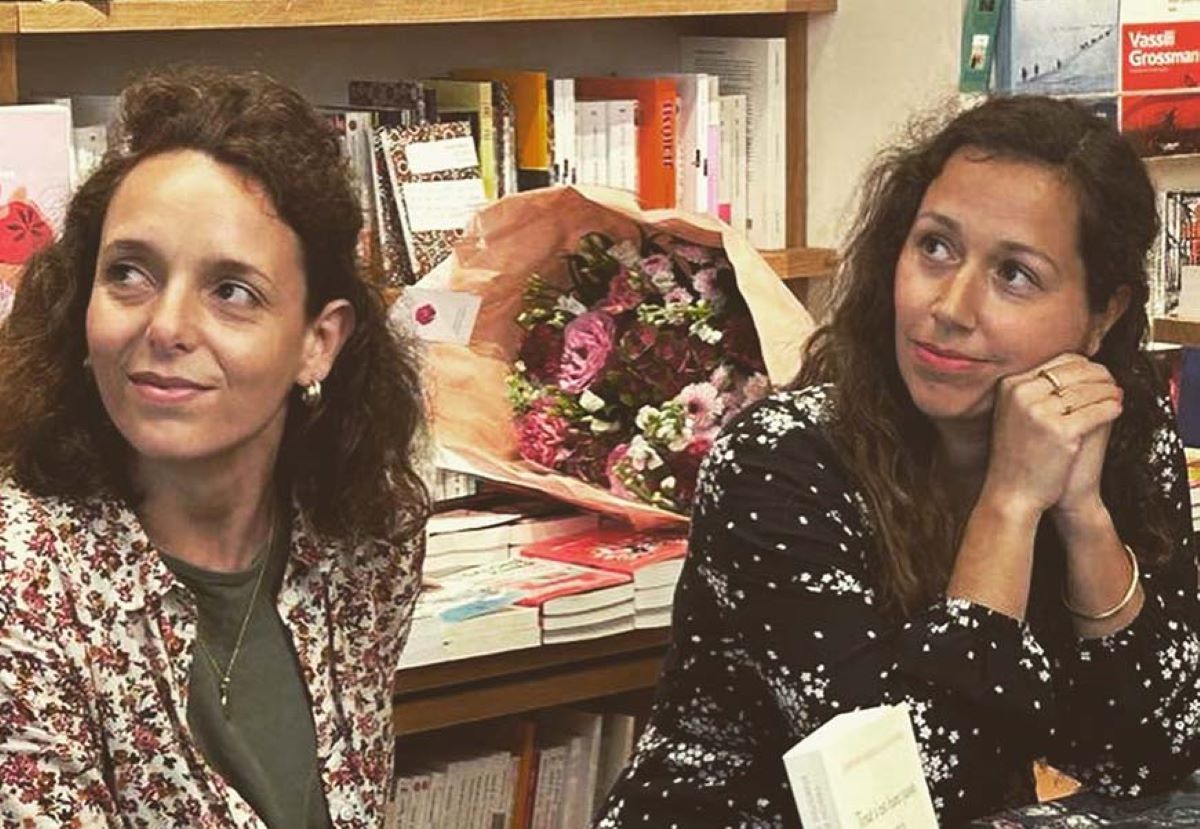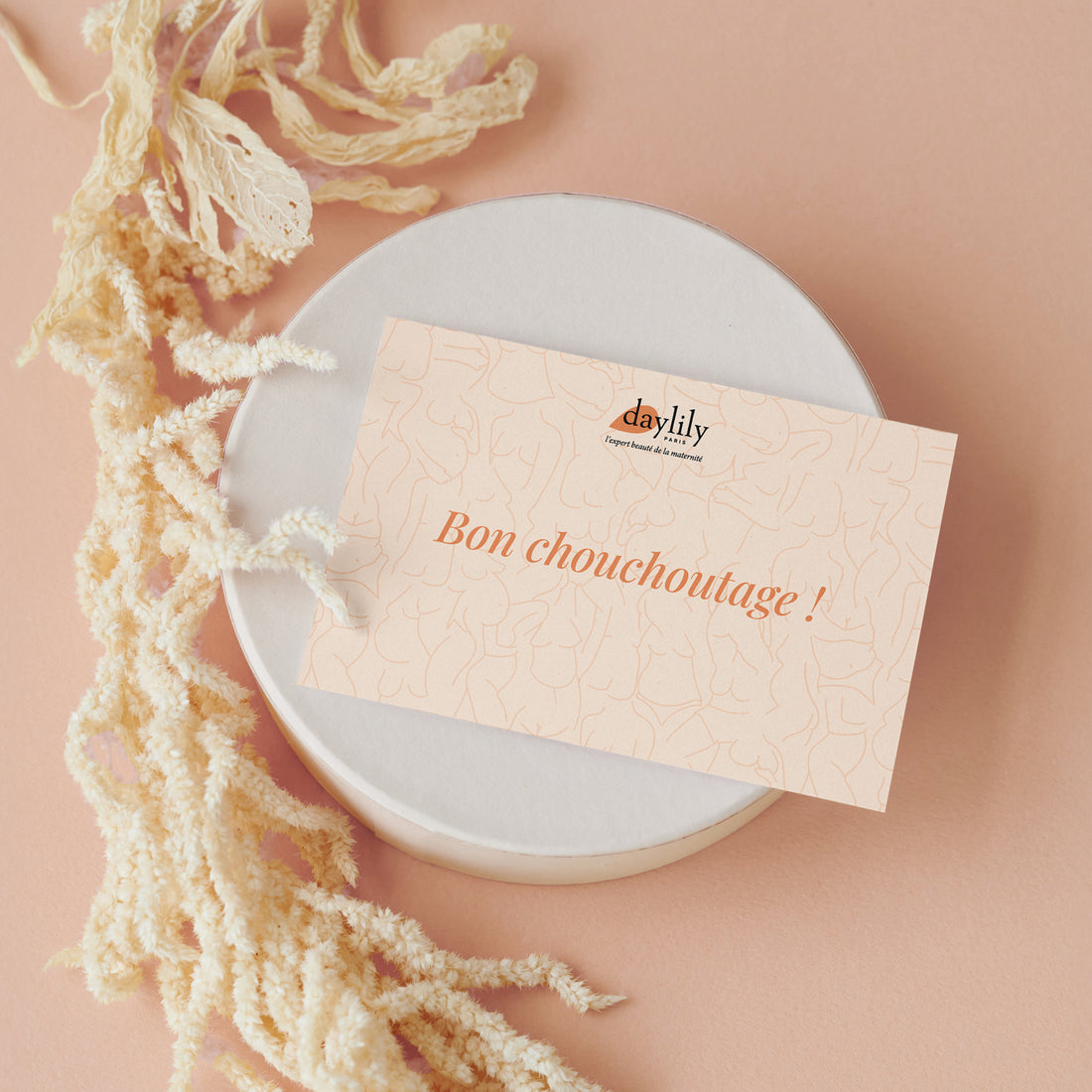- Could you introduce yourself?
- You have just released the book “Everything went well, thank you: a story about infertility”, what paths did you go through respectively to start a family?
- Did you choose to talk about your background to those around you when you began the PMA and GPA processes?
- Did you feel any differences in treatment when you each talked about your backgrounds?
- Have you faced any prejudice regarding PMA and GPA?
- Do you think that these taboos around PMA and GPA are still very present today? If so, what do you think they are due to?
- What made you want to open up about your personal journeys through this book?
- What advice would you give to loved ones of people affected by these journeys, so that they can become better caregivers?
Could you introduce yourself?
Caroline Vigoureux : I'm Caroline, I'm a journalist at L'Opinion. I am 37 years old, I have one son and I am expecting my second child.
Julie Fichera : My name is Julie, I'm 37 years old, I work in culture and I'm the mother of Rose, 3 years old.
You have just released the book “Everything went well, thank you: a story about infertility”, what paths did you go through respectively to start a family?
Caroline : I tried for over a year to have a child, without success. So we did infertility tests and we discovered a problem with my partner's sperm motility. This problem was not serious but it helped to understand why I was not getting pregnant. The gynecologist who was following us suggested that we enter a PMA course and have recourse to insemination, which is much less burdensome medically speaking than IVF. For insemination, sperm must be collected in the laboratory, followed by deposit using a pipette in the uterus, after ovarian stimulation. We were lucky because I got pregnant from the first insemination.
Our journey became a little more complicated later because, due to the ovarian stimulation I had done, I was pregnant with twins. However, we discovered at the 3-month ultrasound that one of the twins was affected by serious malformations and suffered from very severe Down syndrome. We therefore resorted to a medical termination of pregnancy. It was a very painful moment and our feelings were very ambivalent, because we had the joy of expecting a child who was doing well, and the pain of having to mourn the loss of the second.
Julie : To start our family, my partner and I chose GPA, because this practice addressed our infertility problem. At 16 I learned that I would not be able to bear a child due to a rare congenital malformation characterized by an absence of a uterus, MRKH syndrome. Having a classic ovarian cycle, we could still have a child who was genetically ours. We chose the United States and California, which is the pioneering state of surrogacy and where this practice is perfectly legally regulated.
Did you choose to talk about your background to those around you when you began the PMA and GPA processes?
Caroline : I spoke about it to those closest to me but not to the second circle, that is to say my colleagues or other friends. With Julie, we realized that we frequently responded to people asking us about our pregnancies: “Everything went well, thank you,” out of modesty, out of embarrassment and because it was simpler. We pretended and fueled the taboo of infertility without even realizing it.
Julie : For my partner and I, our respective families and our intimate circles have been a real support. From the start, we took them into our confidence. For my part, I grew up with my infertility, so my family knew the possibilities that would be available to me if I decided to become a mother. On my partner's side, the news was well received and our choices were perfectly understood. I am aware that GPA raises many questions. But those around us know us and knew that this decision was carefully considered. They accompanied us with kindness and modesty during these four years.
Did you feel any differences in treatment when you each talked about your backgrounds?
Caroline : The big difference is that PMA is very common in France, one in six couples are affected by infertility and can therefore resort to PMA. Julie resorted to surrogacy, which is illegal in France and very divisive. My route was therefore more “classic”. It was also by comparing our paths that I developed a feeling of injustice in relation to what Julie was experiencing. For example, I paid nothing for my PMA even though the GPA was very costly for her. We actually say in the book that we both experienced ovarian stimulation, she before the egg collection, me before the insemination. It turns out that I didn't know the cost of these injections because I had simply taken out my vital card. Julie had to pay €2,000 for this stimulation... The financial obstacle is enormous.
The view of others on PMA and GPA is not the same either. I questioned myself a lot about this, I asked myself why society offered me this possibility when it refused it? How was my desire to have a child and to be a mother more legitimate than hers?
Have you faced any prejudice regarding PMA and GPA?
Julie : I wouldn't say prejudice but rather clumsiness. GPA is a practice that is still on the fringes and little known. People wonder a lot about the link with the surrogate woman and her status, which is entirely legitimate. The subject is divisive, everyone has an opinion on the issue, even without really knowing the ins and outs. I was very afraid of people's judgment or opinions on this issue. So I opted for silence. Except with those close to me, I never raised the subject. Even though I am aware that I myself fuel the taboo, I still notice that it is still difficult to talk openly about the problems one encounters in having a child. As if having and wanting a child should only be wonderful.
Caroline : The question of infertility still remains taboo. Even if we talk about it more than before, there remains this commonly accepted idea according to which pregnancy and the idea of having a child is only happy. It obviously is, being a mother is incredible and indescribable, but we realized that we were also feeding this belief and this taboo of infertility by responding “Everything went well thank you” systematic and mechanical manner.
Do you think that these taboos around PMA and GPA are still very present today? If so, what do you think they are due to?
Julie : For me, infertility from a medical point of view is no longer too taboo. We talk about it with figures and scientific terms quite openly, it's a hot topic. On the other hand, I think that pain and the associated feelings are still taboo. When the journey to having a child is complicated, things are still quiet. There are few professional arrangements, for example, for these courses which have a major impact on daily life. And then it remains an intimate subject that remains difficult to share with as many people as possible when we are going through these difficult periods.
Caroline : Concerning GPA especially, the taboo is still total. We do not live in a society mature enough to approach this subject in a dispassionate manner. Julie and I are well aware that GPA is a very divisive political subject and our book is not a political plea in favor of GPA, but we wanted to tell the complexity of the journey. In my opinion, the power of Julie's testimony is also due to the fact that she says that not everything is wonderful about GPA.
What made you want to open up about your personal journeys through this book?
Caroline : We wanted to tell the story of the emotional upheaval preceding the happy ending that we both experienced while having children. It seemed important and necessary to us to break the too often invisible and silent drama that infertility can be.
Julie : During these four years of combat, I often felt very alone and misunderstood by those who followed our journey. I became very withdrawn and ultimately fueled the taboo on this issue. You had to accept the sadness and the fact that wanting a child can be wonderful and painful at the same time and not be ashamed of what you might feel. Looking back, I said to myself that it was important to share this type of experience.
What advice would you give to loved ones of people affected by these journeys, so that they can become better caregivers?
Caroline : I would say to suggest to people going through these journeys to talk about it because they are really journeys during which you feel quite alone. When we are unable to have a child we often develop a feeling of shame that is quite unspeakable. When we are a woman between 30 and 35 years old and we are trying to have a child, we often have friends around us who become pregnant one after the other. We have the impression that what is easy, natural and accessible to everyone is for us something totally insurmountable. We can then develop a feeling of injustice and jealousy which makes us feel a little miserable... Since we published our book, we have received many extremely touching testimonies from women telling us that we were able to put words to what they felt without daring to express it. I therefore advise all those close to people on these journeys to talk about it, listen to them and show them that there is nothing shameful or unspeakable in having these fairly ambivalent feelings. .
Julie : Yes, I would advise being present at all times and asking first and foremost “how are you feeling?” ".






